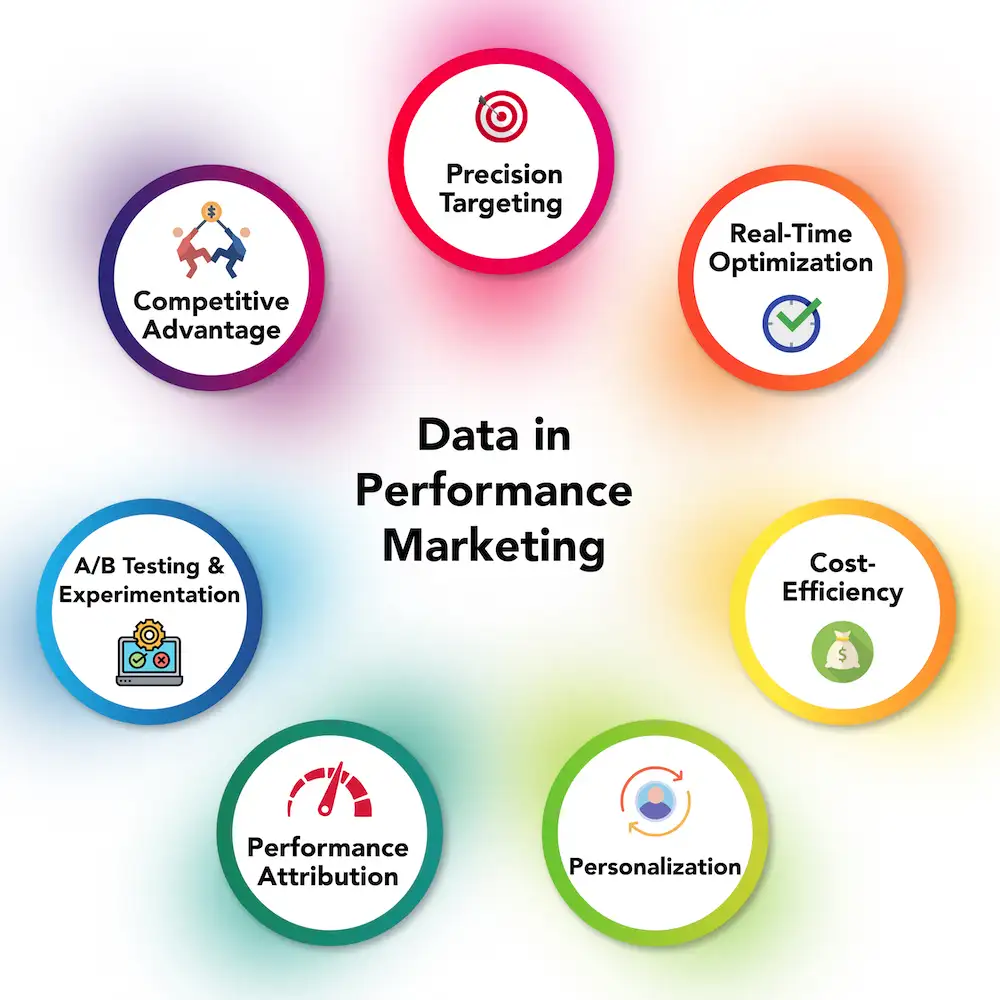The Role of Data in Performance Marketing

Enter performance marketing, a cutting-edge approach that’s gaining recognition as an essential companion to traditional digital marketing methods. This powerful technique focuses on driving growth and offers a straightforward way to showcase return on investment (ROI).


Precision Targeting
Data is the foundation of precision targeting in performance marketing. Through data analytics and audience segmentation, marketers can identify and reach the most relevant and valuable customers. Detailed data insights help create accurate customer personas, enabling marketers to tailor their messaging and ad placements to specific demographics, behaviours, and interests. This precision ensures that marketing efforts are not wasted on irrelevant audiences and that resources are allocated where they are most effective.
Real-Time Optimisation
In traditional marketing, campaigns often run for extended periods before any meaningful analysis can occur. Performance marketing, on the other hand, relies on real-time data analysis to make quick adjustments. Marketers can monitor key performance indicators (KPIs) such as click-through rates, conversion rates, and return on ad spend (ROAS) as they happen. If a campaign is underperforming, changes can be made immediately, allowing for continuous improvement and Optimisation.
Cost-Efficiency
Data-driven decision-making in performance marketing is synonymous with cost efficiency. With access to precise data, marketers can allocate budgets strategically, ensuring that money is spent where it matters most. For example, if a particular channel or keyword is delivering a high ROI, funds can be reallocated to maximize returns. This efficiency minimises wasted ad spend and maximizes the overall impact of marketing budgets.
Personalisation
Personalisation is key to engaging today’s consumers. Data allows marketers to understand individual customer preferences, behaviours, and purchase histories. Armed with this information, they can create highly personalised marketing messages and offers. This level of personalisation not only improves the customer experience but also drives higher conversion rates and customer loyalty.
Performance Attribution
A/B Testing and Experimentation
Attribution modelling is another area where data shines in performance marketing. It helps marketers understand the customer journey and determine which touchpoints contribute most to conversions. With accurate attribution data, businesses can allocate credit appropriately to various marketing channels and tactics. This insight informs budget allocation, ensuring that the most effective channels receive the resources they deserve.
Competitive Advantage
In a competitive market, having access to data can provide a significant advantage. Brands that leverage data effectively can stay ahead of competitors by identifying emerging trends, understanding customer behaviour shifts, and adapting their strategies accordingly. It allows for proactive decision-making rather than reacting to changes in the market.
Takeaways
Data is the lifeblood of performance marketing. It empowers marketers to make data-driven decisions, precision-target their audiences, optimize campaigns in real-time, allocate budgets efficiently, personalise messaging, attribute performance accurately, experiment and test, and gain a competitive edge. As the marketing landscape continues to evolve, those who harness the power of data will be better equipped to achieve their goals, drive ROI, and thrive in an ever-changing digital world. That’s why, for anyone engaged in performance marketing, understanding and leveraging data is not just important—it’s absolutely essential.





